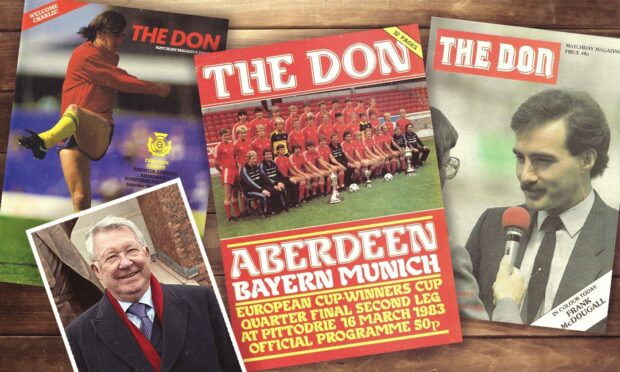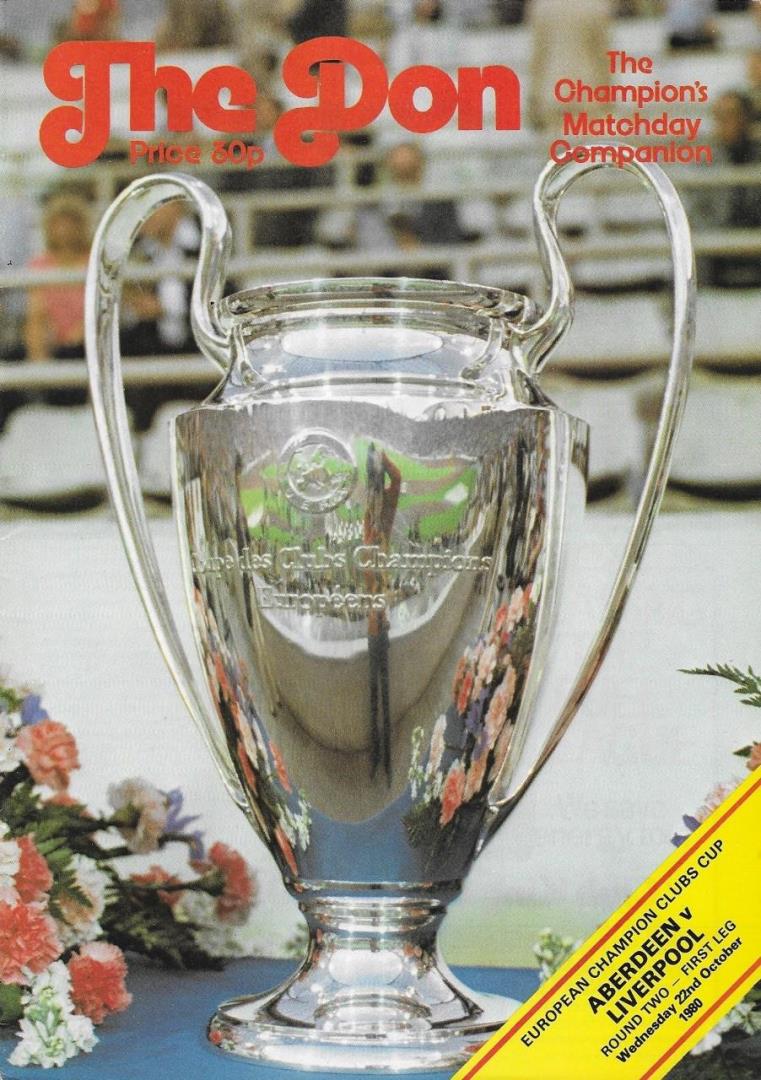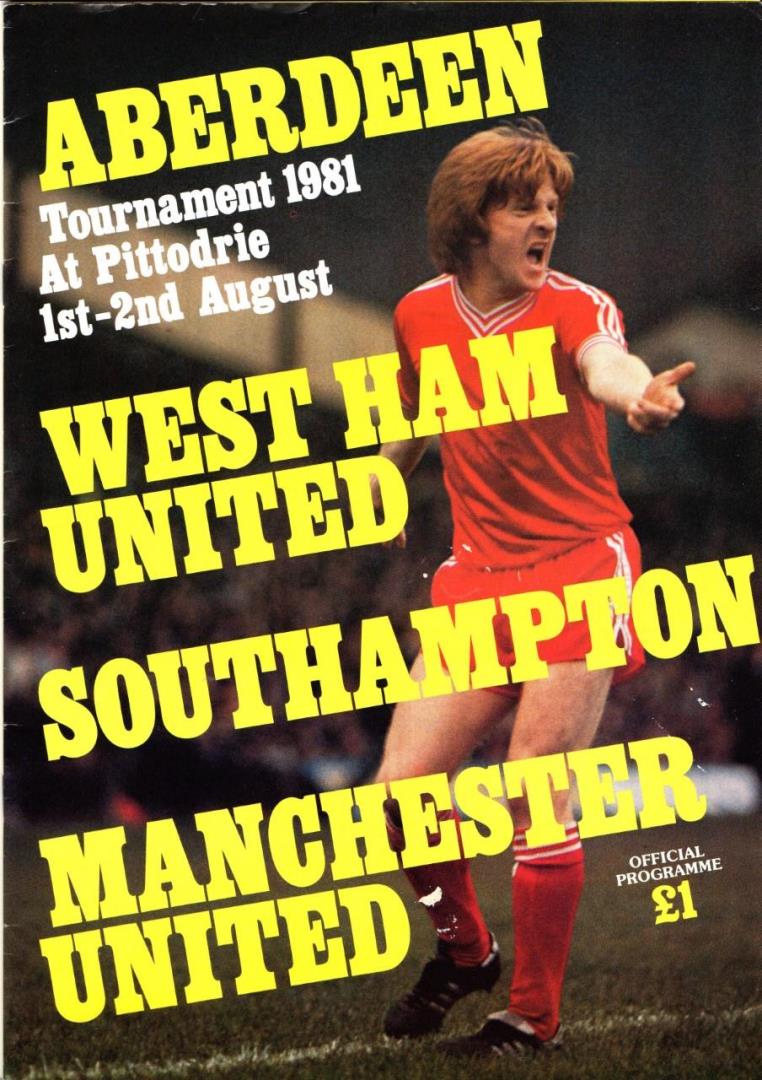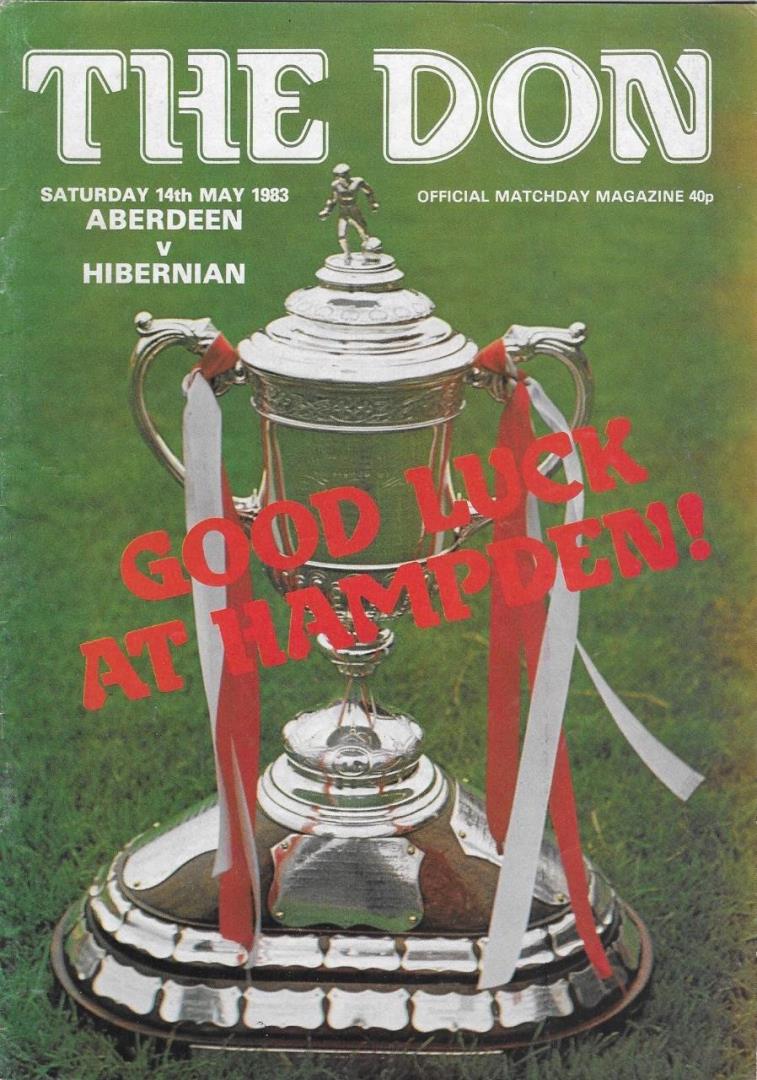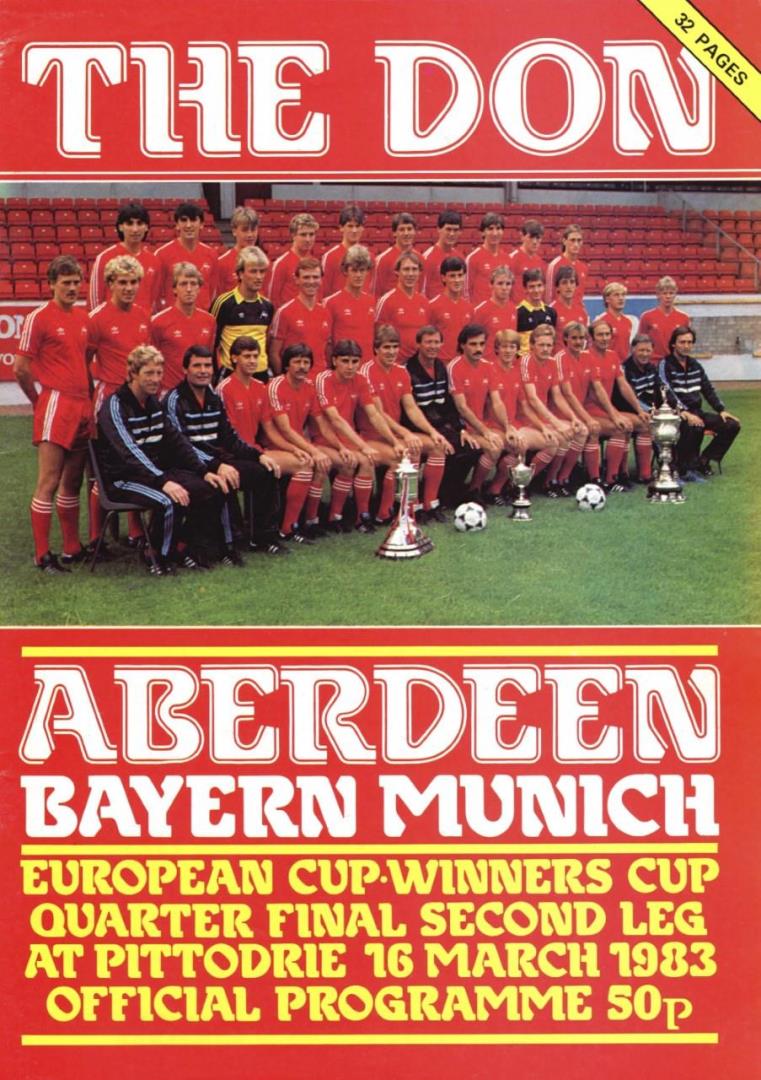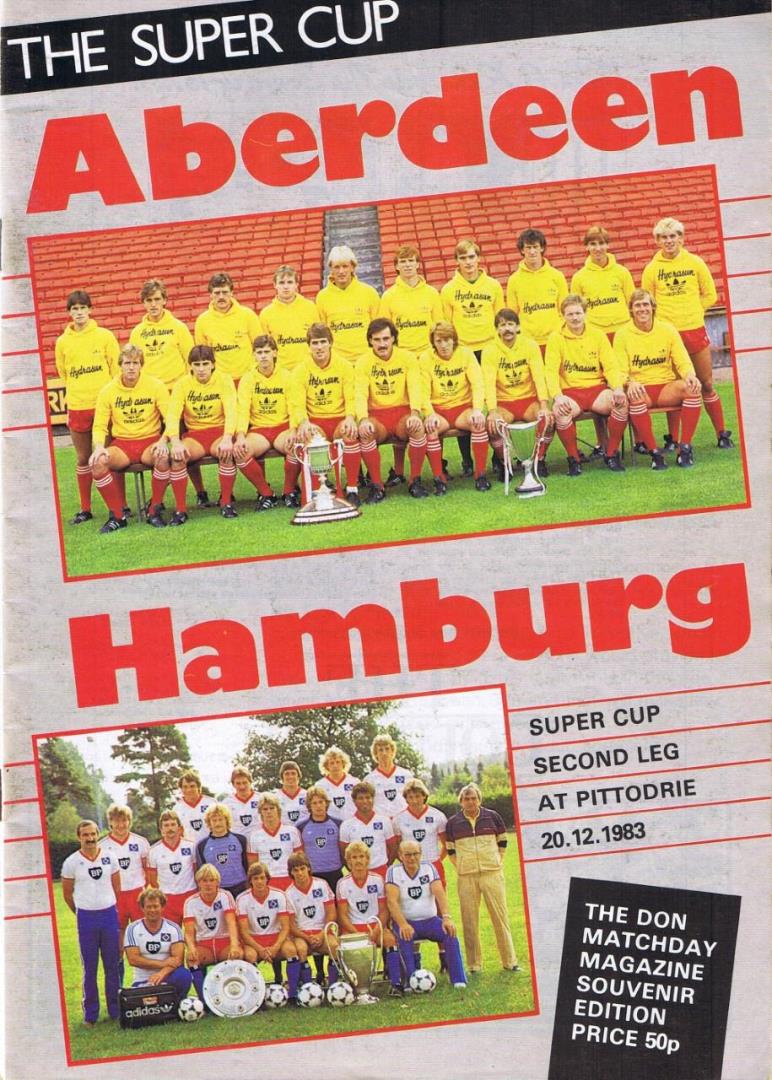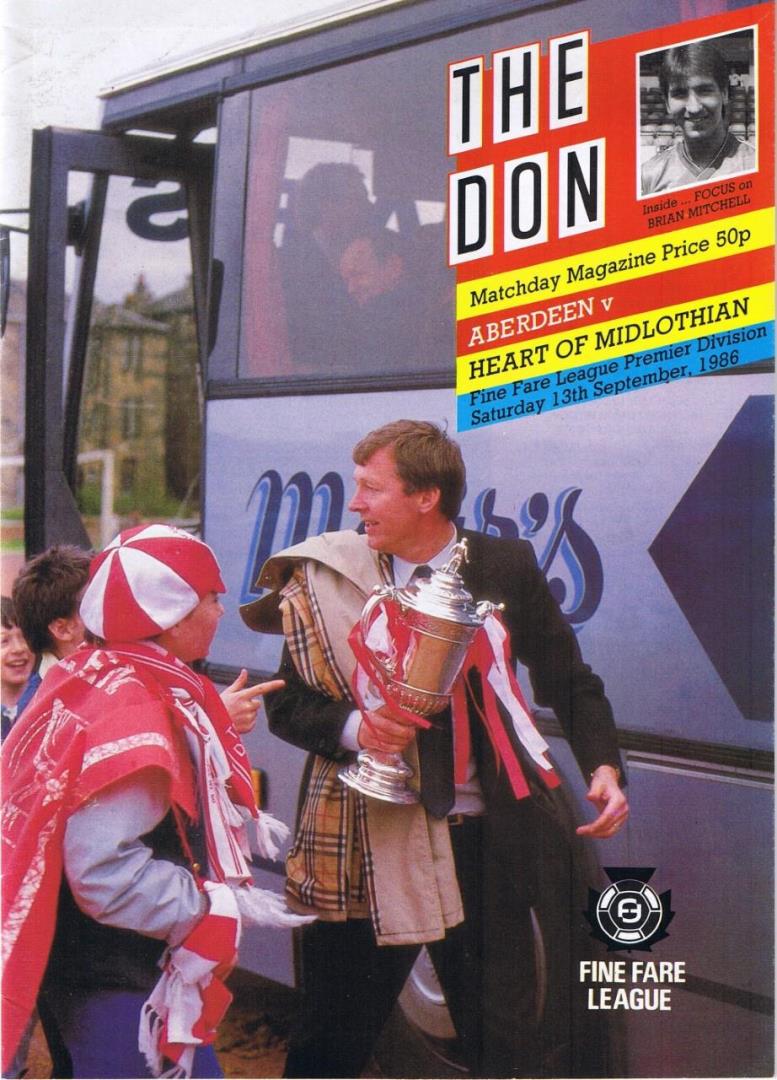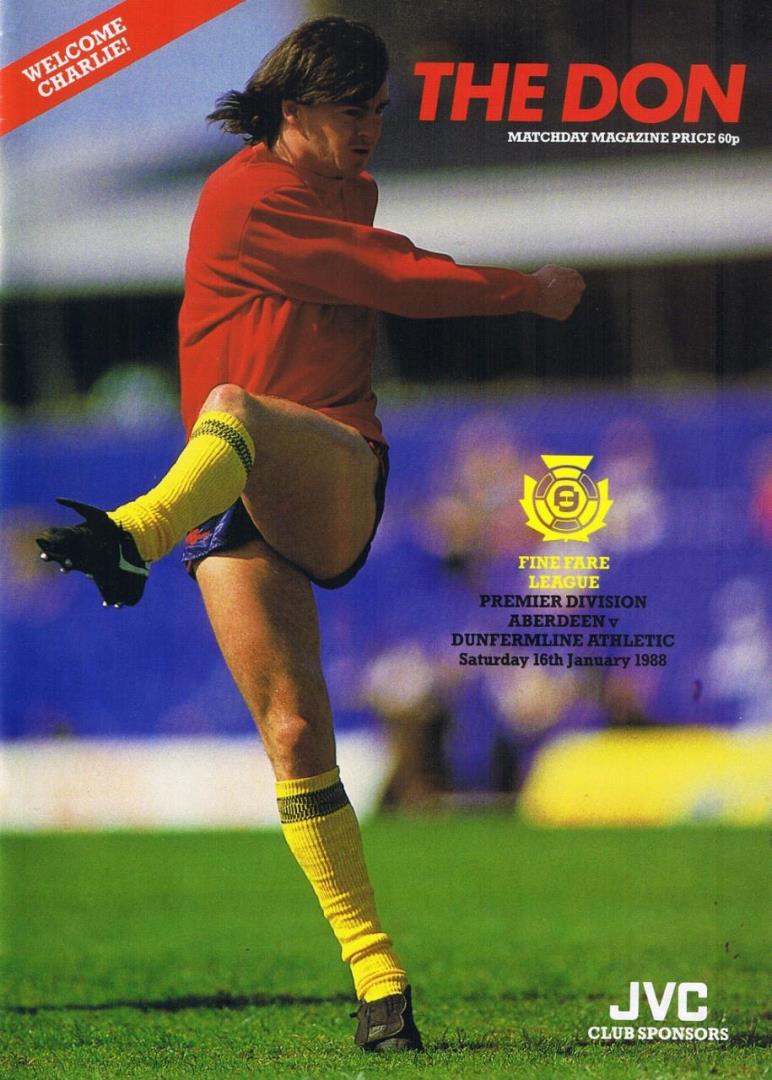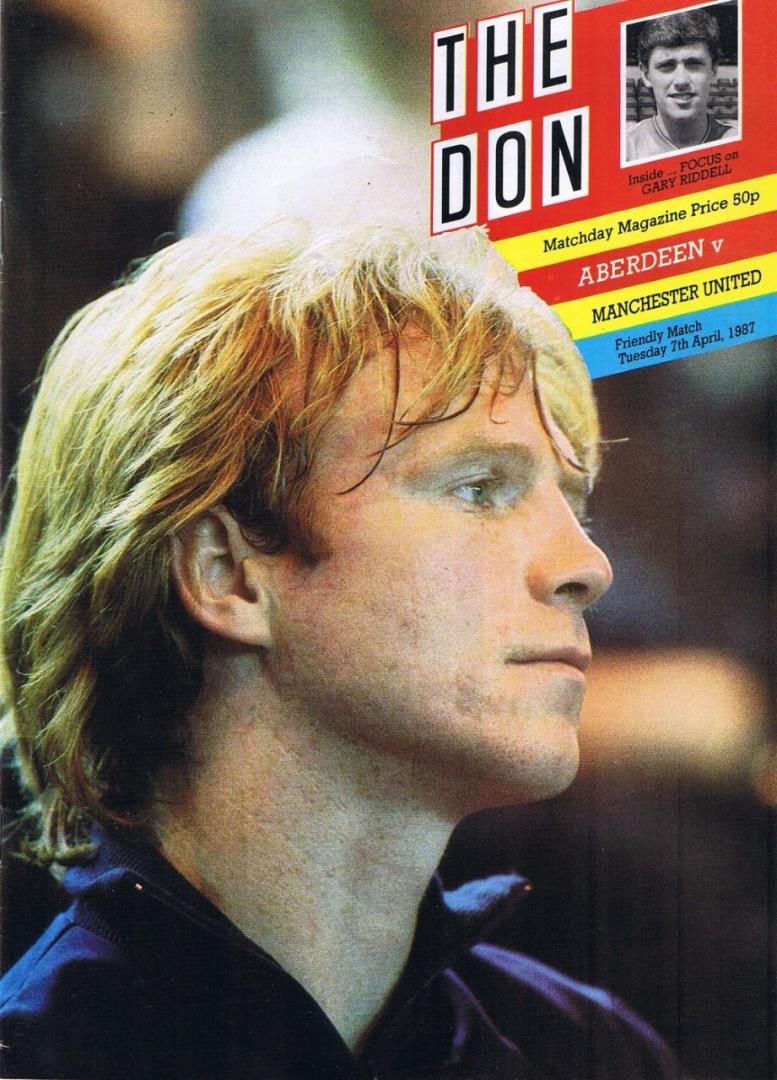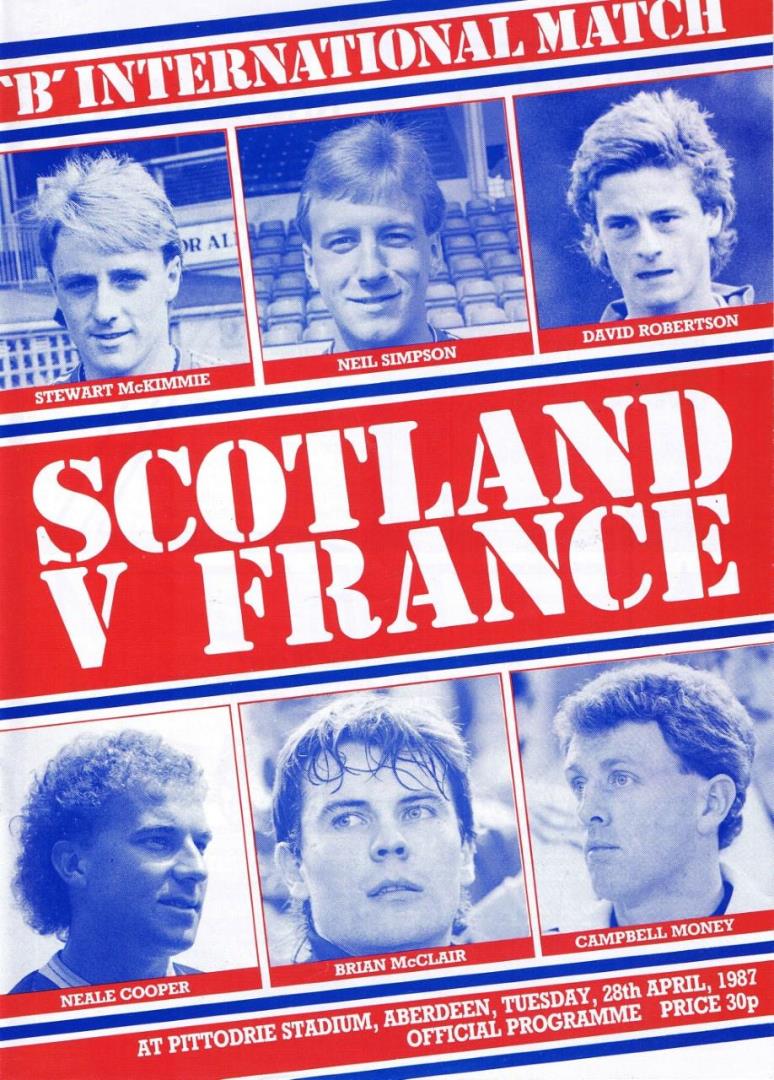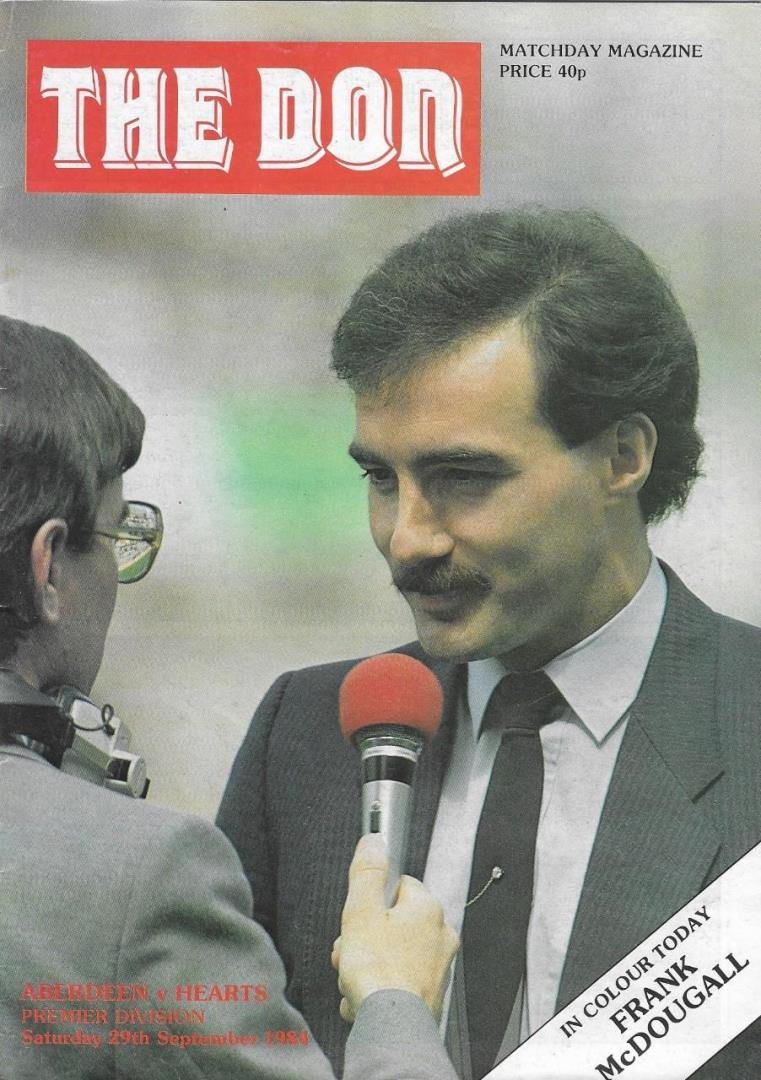It was the greatest decade in the history of Aberdeen FC and the dedicated people who lovingly compiled the club’s match programmes were with their heroes every step of the way.
In the space of just three years, the Dons went from being thrashed 5-0 on aggregate by Liverpool in the European Cup in 1980 to becoming the first Scottish team to lift a brace of European trophies with memorable victories over Real Madrid and Hamburg to secure the European Cup Winners’ Cup and the Super Cup – a feat that has never been repeated.
These were halcyon days for the Pittodrie faithful who revelled in the inspiring and occasionally intimidating management style of Alex Ferguson – a man who instilled a core of steel in his personnel which meant they feared nobody on their travels, whether in Scotland or further afield.
Their programmes were a class act as well, reflecting the style and substance in print which the likes of Willie Miller, Alex McLeish, John McMaster and Gordon Strachan displayed on the pitch.
And now, Aberdeen FC Heritage Trust volunteer, Peter Elliott, has produced the definitive guide to these publications, as the 1980s brought a treasure trove of different memories.
Even if that Liverpool defeat was difficult for Fergie to stomach – particularly the 4-0 loss at Anfield – he and his charges weren’t inclined to let their shoulders slump.
On the contrary, they raised their standards, aimed for the stratosphere and, for a period, left the Old Firm trailing in their wake.
They hosted the Aberdeen tournament in the summer of 1981, an event which featured Manchester United, West Ham and Southampton, and was graced by a litany of A-listers, including Alan Ball, Kevin Keegan, Trevor Brooking and Charlie George, who all performed at Pittodrie.
But these luminaries had no answer to the hosts, who surged past West Ham 3-0 and trounced Southampton 5-1 in the final.
A signal had been delivered – and, just a few weeks later, they knocked out the reigning Uefa Cup champions Ipswich Town with a masterclass in attacking football.
Looking back, the sheer momentum the Dons generated during that golden spell was remarkable.
Fergie and his captain, Miller, both detested losing and ensured that any signs of complacency were knocked on the head.
Soon enough, they were meeting and beating many of the best English and Continental opponents and, as Peter’s new book highlights, sometimes they had more problems with the north-east weather than any rivals.
The harsh winter of 1981-82 caused havoc with the fixture list and Pittodrie hosted no competitive matches for more than two months from November 28 until January 30. Yet, if it caused any frustrations within the side, the players soon took it out on the rest of the league when blizzards finally relented.
There was something almost magical about the fashion in which Ferguson and his troops dominated the domestic scene and marched on to centre stage with a series of triumphant European nights in front of an evangelical crowd.
Nobody will ever forget the exploits of the Gothenburg Greats, who burst into the global spotlight with their success over mighty Real on a rainy evening in Sweden, where John Hewitt’s late goal sparked wild celebrations.
However, the catalyst for that unprecedented success had been the Dons’ dramatic conquest of Bayern Munich in the quarter-finals, where even Ferguson feared his side were heading out when they trailed 2-1 at home with less than 20 minutes left on the clock and needed to score twice.
They did. Oh yes, of course they did.
Celtic and Rangers had both won silverware in Europe previously, in 1967 and 1972. But neither had gone on to lift another cup and it seemed it would be an increasingly tough proposition as the likes of Liverpool, Real Madrid, Bayern Munich and other giant clubs bolstered their resources.
Yet, just seven months after Gothenburg, Aberdeen locked horns with Hamburg in the Super Cup and proved their resilience and depth of resources in polishing off the Germans, who were reigning European Cup winners.
It not only provided an early Christmas present for the Red Army but meant the Dons were officially No 1 in Europe. And they were there on merit.
These astonishing achievements couldn’t last indefinitely. Gradually, as the decade advanced, some of the leading lights moved elsewhere and several offers came in for Ferguson, who now enjoyed a stellar reputation.
There’s a poignant programme cover with the manager and young fans enjoying one of the last major victories in the redoubtable Scot’s Pittodrie career before he was eventually lured away to Manchester United in 1986.
Everybody knew it would happen sooner or later. But that didn’t soften the blow.
Aberdeen didn’t suddenly lose their mojo following his departure, though.
And although Ian Porterfield understandably failed to emulate Ferguson’s hot streak and didn’t survive for long at Pittodrie, they remained a club capable of winning prizes and attracting international-class players.
That is borne out by the special programme welcoming new signing Charlie Nicholas to Pittodrie – a sparkling introduction for the striker with a champagne lifestyle, whose 1988 signing was a significant one for the Dons.
And, even if Europe was a step too far, there were cup victories in 1989 and 1990 as a new generation of players began to make their mark.
Peter’s work brings all these disparate events vividly to life and there won’t be many Dons aficionados who aren’t imbued with a dewy glow when they flick through these pages and pull up a memory or 20.
He told me: “The lack of live football during lockdown led to an increase in supporters (of all clubs) using nostalgia as a means of connecting with other fans.
“I began working with the AFC Heritage Trust to launch their magazine Black & Gold in November 2020, and in doing so I’ve been able to keep in touch with a number of Dons supporters on social media.
“As an exiled fan, it’s the only real means I have to stay up to date with fellow Dandies.”
He continued: “I have collected Dons memorabilia for almost 40 years, without really having an avenue for sharing it.
“I know that there are several other long-standing Dons collectors who have been in the game longer than I have, with deeper pockets and an eye on everything from programmes to shirts, pennants, cards and other Dons ephemera, such as letters and historical documents.
“There have been books published by fans of other clubs with lists of programmes to check off, but I found a book last year by a Liverpool collector, where he had scanned the cover from every Liverpool home and away programme since the Second World War.
“At 980 pages, I think that is going to be unique among the collecting world, because it was such a big project to undertake.
“As far as my book goes, I wanted to focus on a short time period, and what better period than when the Dons were team of the decade?
“I’ve had some help from other collectors and the AFC Heritage Trust in making sure that I have got the details right, but as with the collecting game, there may well be that elusive programme that no-one even knew existed until it turns up one day.
“The club have been a great help to me, with their current programme editor, Malcolm Panton, being very supportive of the whole venture.
“The book will be available in the club shop from this week, with proceeds from those sales being donated to the AFC Heritage Trust.”
There hasn’t been much for Dons supporters to savour in recent seasons and only one paltry trophy in the 21st Century.
But here’s a portal back to a time when they jousted with giants and walked tall on the biggest of stages.
